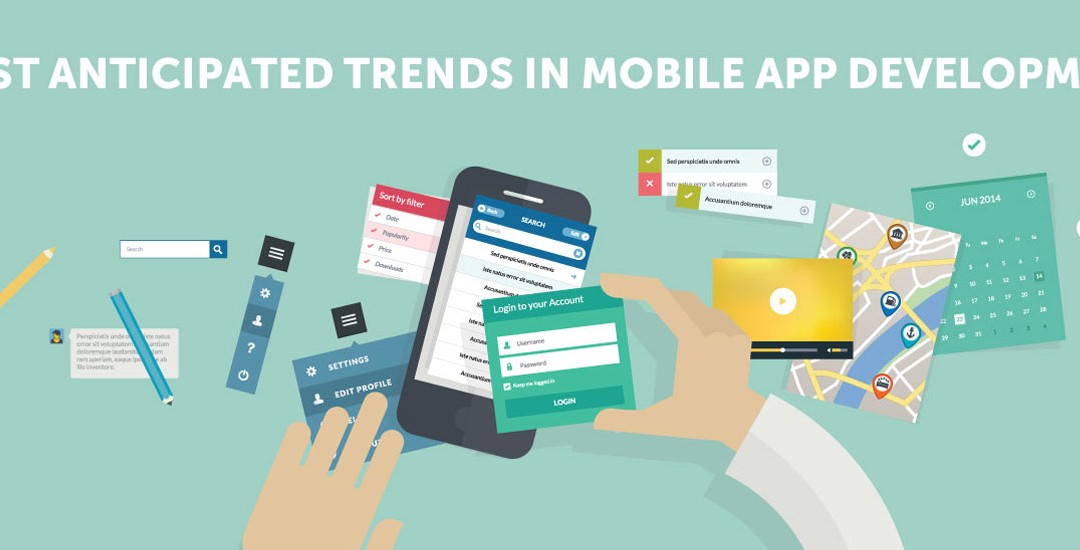Mobile Apps took market by storm and remained amongst the topmost digital trends in 2015. The popularity of mobile applications for both business and non-commercial uses are likely to rise this year—from business to fun, health and education going mobile.
You can make quick money out of mobile apps by either selling the app, selling value-added features on app upgrade or via in-app advertising.
The process of buying apps is going to witness a drastic change in the next few years and app developers might find it challenging to meet the emerging needs of consumers.
2016 is expected to be an exciting year ahead, and we have compiled a list of the biggest app development trends in 2015 which are expected to flourish:
1. Faster app development:
With competition growing at such a rapid pace, companies face a challenge in keeping up with the demand for mobile apps. Mobile app developers are always looking for ways to develop apps faster, without compromising on quality. Many companies offer solutions to help developers release apps faster. Such solutions are offered to keep in mind increasing and dynamic customer demand.
2. Cloud Driven Apps to Gain Prominence:
The cloud technology played an important role in mobile app development. The emergence of wearable technology along with an increase in the usage of multiple mobile devices has generated a need for app developers to focus on skills to sync and integrate their apps on multiple devices this year.
Cloud can facilitate this by allowing developers to build applications which can easily be accessed on various devices while adapting consistent features, data, and functions. Developers are already equipped with complete tool-sets for building apps quicker, with continuous integration, testing, and submission to app stores.
3. The craze for native apps will decrease:
Between the choices of hybrid apps, native apps or web apps, there is always a question mark as to which apps are more cost-effective and are likely to survive in the future. However, this debate ended in 2015 when the hybrid app and web app development proved to be more cost-effective, keeping the target audience in mind.
One major reason behind their popularity is the ease in the development of hybrid and web apps as there are several tools available in the market to make the process easier.
While there is a compromise on the user experience and security for web apps, hybrid apps cover a part of the gap to bring them closer to native.
4. Location-Based and Beacon Internet (Wi-Fi) Services:
Beacon is commonly known as beam technology. Whether it is retail or advertising, deploying beam technology has brought about a transformation – blurring the ROI associated with offline and online app development. Ios has already adopted this technology and Android systems are expected to follow soon. Education, Tourism, Hospitality, Travel, Healthcare, Retail, Entertainment, Corporate, Real Estate, Advertising etc. can benefit from such services.
The best example of beacon technology can be seen in the case of larger buildings where it is used as an internal mapping tool. This technology helps during emergencies by ensuring quicker communication and detection for emergency response teams.
5. Application security will be the main focus:
As per the latest industry surveys, most of the mobile applications failed to pass security tests at an early stage of 2015 so this is going to be the main focus of all app developers this year and in near future.
There are several applications that store personal and sensitive information like Social Security Number or bank details. Any negligence can result in leaking of such sensitive information. This makes it important to safeguard mobile apps. Android and iOS platforms are also ensuring high security by embedding top-notch security features.
In the follow-up to this discussion, we will be publishing some other important app development trends that enterprises need to monitor for more effectively leveraging mobile apps.

